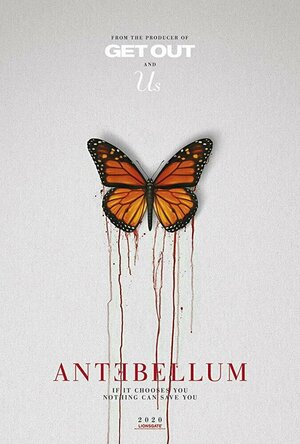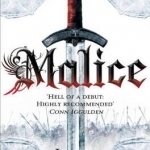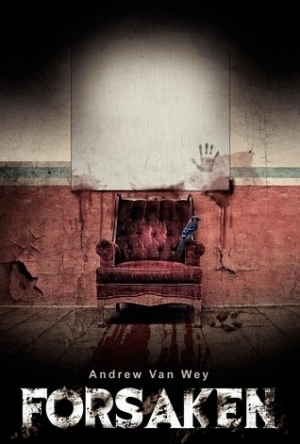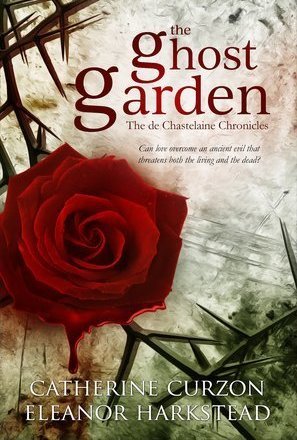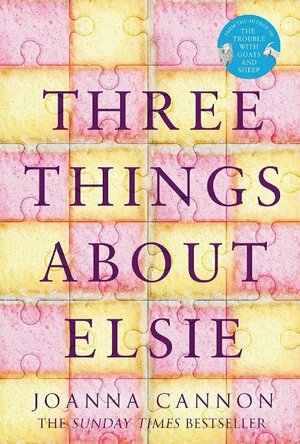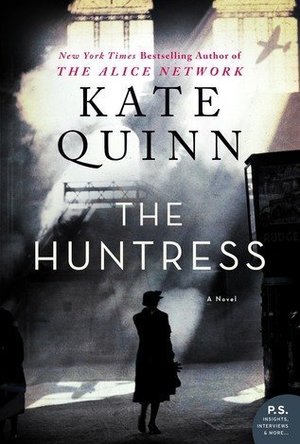Search
Search results
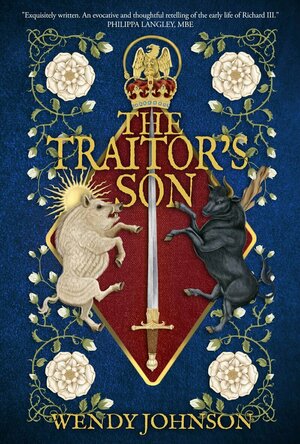
The Traitor's Son
Book
Caught between a king and a kingmaker, young Richard Plantagenet knows he’ll have to choose... ...
Medieval Historical Fiction Richard III Wars of the Roses House of York
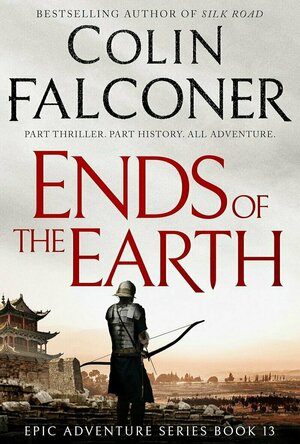
Ends of the Earth (Epic Adventure series, #13)
Book
From the bestselling author of Silk Road comes a brand-new, sweeping action epic about the lost...
Sarah (7800 KP) rated Antebellum (2020) in Movies
Apr 2, 2021
Incredibly dull and predictable
Antebellum is a 2020 thriller film from debut writer directors Gerard Bush and Christopher Renz, the trailer for which implied it was a mind bending, time travelling horror story set during the times of slavery in America. However Antebellum never manages to live up to what it promised, instead turning out to be a rather dull and predictable affair.
Antebellum opens on an unknown plantation somewhere in Louisiana, run by confederate soldiers. Janelle Monae stars as Eden, a slave we first see being beaten and branded by the confederate leader general known only as “Him” (Eric Lange). Running the plantation alongside “Him” is sadistic confederate officer Captain Jasper (Jack Huston) and his equally unpleasant wife Elizabeth (Jena Malone). Eden and her fellow slaves, including newcomer Julia (Kiersey Clemons), suffer numerous acts of brutality and oppressions at the hands of confederate soldiers, all the while trying to plan their escape amid the feeling that this plantation isn’t quite what it seems.
Then one night lying in bed after being raped by the general, Eden hears the ringing of a mobile phone and suddenly wakes up in an entirely different era, where she is now know as renowned sociologist Dr Veronica Henley. Veronica has a husband (Marque Richardson) and young daughter and is currently finishing off a book tour, with some help from her best friends Dawn (Gabourey Sidibe) and Sarah (Lily Cowles). Strange things soon start to happen, and a night out with her friends doesn’t quite the way Veronica had expected.
Antebellum’s biggest flaw, and unfortunately a rather pivotal one, is the story itself. I feel like there is meant to be an important message here, but I feel like it’s lost in the stereotypes and predictability. I’m trying to avoid spoilers, but this film is very reminiscent of one by M. Night Shyamalan and has a very similar storyline. I’d actually go so far as saying that his film was at least more interesting. Antebellum seems to have shied away from showing any real intrigue or thrill or horror at all, and other than switching from Eden to Veronica part way in, nothing of any real substance happens until the last 30 minutes of the film. There was even a lack of hints or subtleties pointing to the later plot twist throughout, and this may at least have helped make it a little less dull.
It’s a shame, as this film did have potential. It looks stunning and has been very well made, from the set design to the costumes, it all looks authentic and the score is suitably tense and dramatic too. The opening scene on the plantation alongside the score made for a very intriguing opener, although sadly this was spoilt some by the use questionable slow motion. Performance wise Gabourey Sidibe brings some much needed humour and fun as Veronica’s man hungry best friend, and Janelle Monae is captivating as both Eden and Veronica. This film is lucky Monae is such a talent, as she’s the only reason this was watchable to the very end. It’s just a shame Jena Malone’s Elizabeth is far too over the top to be a believable villain.
Antebellum is obviously trying to make an important statement about slavery and racism packaged into an unusual thriller/horror, but unlike similar films like Jordan Peele’s Get Out, it doesn’t manage to pull it off and instead flounders with a dull and predictable storyline that most could figure out well before the final act. It’s also severely lacking in any real intrigue or horror, and aside from some good performances, there’s nothing memorable about this at all.
Antebellum opens on an unknown plantation somewhere in Louisiana, run by confederate soldiers. Janelle Monae stars as Eden, a slave we first see being beaten and branded by the confederate leader general known only as “Him” (Eric Lange). Running the plantation alongside “Him” is sadistic confederate officer Captain Jasper (Jack Huston) and his equally unpleasant wife Elizabeth (Jena Malone). Eden and her fellow slaves, including newcomer Julia (Kiersey Clemons), suffer numerous acts of brutality and oppressions at the hands of confederate soldiers, all the while trying to plan their escape amid the feeling that this plantation isn’t quite what it seems.
Then one night lying in bed after being raped by the general, Eden hears the ringing of a mobile phone and suddenly wakes up in an entirely different era, where she is now know as renowned sociologist Dr Veronica Henley. Veronica has a husband (Marque Richardson) and young daughter and is currently finishing off a book tour, with some help from her best friends Dawn (Gabourey Sidibe) and Sarah (Lily Cowles). Strange things soon start to happen, and a night out with her friends doesn’t quite the way Veronica had expected.
Antebellum’s biggest flaw, and unfortunately a rather pivotal one, is the story itself. I feel like there is meant to be an important message here, but I feel like it’s lost in the stereotypes and predictability. I’m trying to avoid spoilers, but this film is very reminiscent of one by M. Night Shyamalan and has a very similar storyline. I’d actually go so far as saying that his film was at least more interesting. Antebellum seems to have shied away from showing any real intrigue or thrill or horror at all, and other than switching from Eden to Veronica part way in, nothing of any real substance happens until the last 30 minutes of the film. There was even a lack of hints or subtleties pointing to the later plot twist throughout, and this may at least have helped make it a little less dull.
It’s a shame, as this film did have potential. It looks stunning and has been very well made, from the set design to the costumes, it all looks authentic and the score is suitably tense and dramatic too. The opening scene on the plantation alongside the score made for a very intriguing opener, although sadly this was spoilt some by the use questionable slow motion. Performance wise Gabourey Sidibe brings some much needed humour and fun as Veronica’s man hungry best friend, and Janelle Monae is captivating as both Eden and Veronica. This film is lucky Monae is such a talent, as she’s the only reason this was watchable to the very end. It’s just a shame Jena Malone’s Elizabeth is far too over the top to be a believable villain.
Antebellum is obviously trying to make an important statement about slavery and racism packaged into an unusual thriller/horror, but unlike similar films like Jordan Peele’s Get Out, it doesn’t manage to pull it off and instead flounders with a dull and predictable storyline that most could figure out well before the final act. It’s also severely lacking in any real intrigue or horror, and aside from some good performances, there’s nothing memorable about this at all.
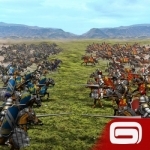
March of Empires
Games and Social Networking
App
Brace yourself for an age of massive medieval war, where you will march over your rivals’ burning...
Ross (3284 KP) rated Malice: Book One of the Faithful and the Fallen in Books
Dec 1, 2017
The action (1 more)
The hints of the epic story still to come
The number of characters and places to try and remember (1 more)
A little long and derivative
This book, the first in a series of four, chronicles the beginning hints at the coming God-War, a time when the forces of good and evil will battle for the world (pretty standard fantasy fayre), with prophecies unfolding and battles for thrones.
The book moves between different character PoVs, which is fairly common these days, but I found some of the characters to be indistinguishable. For the first third of the book, if the PoV was Camlin, Kastell or Veradis I struggled to remember who he was or what he had been doing. This did start to improve around the halfway mark, but it is quite a slog at times to remember the events preceding this chapter.
The bulk of the book, however, follows Corban, a young blacksmith's son hoping to become a warrior some day, but is stuck working his da's forge, helping stablemaster Gar or apprenticing to healer Brina. His development over the book is well told, he doesn't suddenly become a master swordsman but at the same time we don't have to sit through chapter after chapter of him learning sword forms (Rand al Thor could learn a lot from Corban!).
Along the way, Corban has also become friends with a wild wolven (giant wolves hunted near extinction), whom he raised from a pup. Yes, exactly like the Stark children in GoT. Leave it.
The political intrigue and manoeuvring throughout the book is great as events seeming to be based on one king/queen's ambitions actually turn out to be based on another's treachery.
The battle scenes are well told and believable without the main characters always escaping unscathed.
The book finished with a number of deceptions uncovered and the main group of characters fleeing for their lives, with more secrets to be uncovered.
The book moves between different character PoVs, which is fairly common these days, but I found some of the characters to be indistinguishable. For the first third of the book, if the PoV was Camlin, Kastell or Veradis I struggled to remember who he was or what he had been doing. This did start to improve around the halfway mark, but it is quite a slog at times to remember the events preceding this chapter.
The bulk of the book, however, follows Corban, a young blacksmith's son hoping to become a warrior some day, but is stuck working his da's forge, helping stablemaster Gar or apprenticing to healer Brina. His development over the book is well told, he doesn't suddenly become a master swordsman but at the same time we don't have to sit through chapter after chapter of him learning sword forms (Rand al Thor could learn a lot from Corban!).
Along the way, Corban has also become friends with a wild wolven (giant wolves hunted near extinction), whom he raised from a pup. Yes, exactly like the Stark children in GoT. Leave it.
The political intrigue and manoeuvring throughout the book is great as events seeming to be based on one king/queen's ambitions actually turn out to be based on another's treachery.
The battle scenes are well told and believable without the main characters always escaping unscathed.
The book finished with a number of deceptions uncovered and the main group of characters fleeing for their lives, with more secrets to be uncovered.
Sensitivemuse (246 KP) rated Forsaken in Books
Jan 8, 2018
Great Horror Elements, Plot needs more
The horror aspects of this book was really good. It was creepy enough to give you the heebie jeebies and anything to do with strange looking paintings and children always make things more creepier than they should be. (The Shining, anyone?)
I can’t really say I like Daniel as a character. He had it coming to him. It was an awful cruel thing he did and he deserved every last bit of it. None of the characters really stood out here since Daniel was really the center of the plot, but wow Karina. You’re just some kind of special aren’t you? She played on Daniel’s sympathy until he realized she’s completely bat crazy and well, you walked into that one didn’t you? This is what happens when you want the cake and the cherry on top. Just don’t do it. However tempting that is.
Plot wise, it’s pretty entertaining and good stuff for a horror book. It does come off as reading a horror movie in print which is pretty good and frankly, if this ever was a movie, I’d probably watch it and enjoy it better. The ending was great and is everything you would expect in a horror movie or book. There’s mystery elements into the book which does not affect the story that much and adds more intrigue.
Although the horror elements were good, the execution of the story could be better. I thought certain aspects of the plot were just there for convenience. There could have been more to the Mabel plot arc. It was just planted there with no real explanation except it was given about 2-3 pages but no real contribution. I wish there was more to it. It would have helped, and could have made the story much better.
Despite some of the shortcomings of the book, it was an enjoyable read. It was creepy enough to give you the chills and the ending was what you would expect in this genre. Recommended to horror lovers!
I can’t really say I like Daniel as a character. He had it coming to him. It was an awful cruel thing he did and he deserved every last bit of it. None of the characters really stood out here since Daniel was really the center of the plot, but wow Karina. You’re just some kind of special aren’t you? She played on Daniel’s sympathy until he realized she’s completely bat crazy and well, you walked into that one didn’t you? This is what happens when you want the cake and the cherry on top. Just don’t do it. However tempting that is.
Plot wise, it’s pretty entertaining and good stuff for a horror book. It does come off as reading a horror movie in print which is pretty good and frankly, if this ever was a movie, I’d probably watch it and enjoy it better. The ending was great and is everything you would expect in a horror movie or book. There’s mystery elements into the book which does not affect the story that much and adds more intrigue.
Although the horror elements were good, the execution of the story could be better. I thought certain aspects of the plot were just there for convenience. There could have been more to the Mabel plot arc. It was just planted there with no real explanation except it was given about 2-3 pages but no real contribution. I wish there was more to it. It would have helped, and could have made the story much better.
Despite some of the shortcomings of the book, it was an enjoyable read. It was creepy enough to give you the chills and the ending was what you would expect in this genre. Recommended to horror lovers!
Merissa (13816 KP) rated Reborn (Semiramis #2) in Books
Feb 8, 2019
Reborn (Semiramis, #2) by Maya Daniels
Reborn is the second book in the Semiramis series, and we continue where we left off. Alexia is training hard, determined to find her sisters, Philip, and Derik. Lucifer is training her for his own reasons, and I'm happy to say Daisy makes a reappearance. Alexia is changing, not very surprising considering what happened at the end of the first book, but she is struggling with it. She is full of anger and guilt about what happened to her sisters.
This book is full of ideas on how to be 'reborn', and I think Alexia does most of them. It all runs true with the story though, and in each case it is more interesting, giving the reader more of an idea of what is going on, whilst still leaving me wanting more. I loved seeing the interplay between Alexia and Lucifer, but I will admit to loving when Remi and the others come back into play. There is something about how they spark off each other that makes it perfect. Although I understood Alexia's internal monologues, I loved how she was once they were all reunited.
There is no middle book slump with this book. It is a fantastic addition to the series. The world-building continues to excel, and the characters are interesting and fully-dimensional. There is layer upon layer of intrigue, and I really can't wait to continue with The Vessel. This is one story that I am thoroughly enjoying, and I need to finish it. I need to see where it is going, what will be the outcome, and of course, just how Lucifer and Alexia finish their... training. ?
If you love #Fantasy #Romance, then I have absolutely no hesitation in recommending either this book, or the series.
* A copy of this book was provided to me with no requirements for a review. I voluntarily read this book, and the comments here are my honest opinion. *
Merissa
Archaeolibrarian - I Dig Good Books!
This book is full of ideas on how to be 'reborn', and I think Alexia does most of them. It all runs true with the story though, and in each case it is more interesting, giving the reader more of an idea of what is going on, whilst still leaving me wanting more. I loved seeing the interplay between Alexia and Lucifer, but I will admit to loving when Remi and the others come back into play. There is something about how they spark off each other that makes it perfect. Although I understood Alexia's internal monologues, I loved how she was once they were all reunited.
There is no middle book slump with this book. It is a fantastic addition to the series. The world-building continues to excel, and the characters are interesting and fully-dimensional. There is layer upon layer of intrigue, and I really can't wait to continue with The Vessel. This is one story that I am thoroughly enjoying, and I need to finish it. I need to see where it is going, what will be the outcome, and of course, just how Lucifer and Alexia finish their... training. ?
If you love #Fantasy #Romance, then I have absolutely no hesitation in recommending either this book, or the series.
* A copy of this book was provided to me with no requirements for a review. I voluntarily read this book, and the comments here are my honest opinion. *
Merissa
Archaeolibrarian - I Dig Good Books!
Merissa (13816 KP) rated The Ghost Garden (The de Chastelaine Chronicles #1) in Books
Apr 23, 2019
The Ghost Garden (The de Chastelaine Chronicles #1) by Catherine Curzon & Eleanor Harkstead
Set in the time between WWI and WWII, The Ghost Garden is an incredible tale that will capture your imagination and keep you turning the pages from the very beginning until the last word - and even then it will not be enough. You will be left wanting more, and as this says it is book one in the de Chastelaine Chronicles, I am very hopeful!
Set in an isolated school with a bully of a headmaster, and a meek and mild wife, this story immediately shows you there is more the Cecily than being 'Mrs Headmaster'. She has endured and survived, but not it is her time to thrive... although that doesn't happen without plenty of danger. I loved her acts of rebellion, small as they may seem, but you have to comprehend what she was living with. Those acts, however small, gave her the strength and courage to continue.
And then along comes Raf - blue-eyes and mischievous, infusing life back into the school and into Cecily herself. He is a friend first, never pushing for more. I loved hearing about his past as the story progressed. Their relationship had a naivety, an innocence, to it that was perfect. For all she was a married woman, Cecily was most certainly innocent in the ways of love, although Raf was more than happy to help out!
Mystery and intrigue wrap around this romance, giving you a fantastic read from a time gone by. I have never wanted for two couples (yes, you read that right) to get their HEA more than I did the characters in this book. One couple, I hope, has a peaceful time, whilst for Raf and Cecily, I hope for plenty more adventures to come.
A stunning novel that I heartily recommend!!!
* A copy of this book was provided to me with no requirements for a review. I voluntarily read this book, and the comments here are my honest opinion. *
Merissa
Archaeolibrarian - I Dig Good Books!
Set in an isolated school with a bully of a headmaster, and a meek and mild wife, this story immediately shows you there is more the Cecily than being 'Mrs Headmaster'. She has endured and survived, but not it is her time to thrive... although that doesn't happen without plenty of danger. I loved her acts of rebellion, small as they may seem, but you have to comprehend what she was living with. Those acts, however small, gave her the strength and courage to continue.
And then along comes Raf - blue-eyes and mischievous, infusing life back into the school and into Cecily herself. He is a friend first, never pushing for more. I loved hearing about his past as the story progressed. Their relationship had a naivety, an innocence, to it that was perfect. For all she was a married woman, Cecily was most certainly innocent in the ways of love, although Raf was more than happy to help out!
Mystery and intrigue wrap around this romance, giving you a fantastic read from a time gone by. I have never wanted for two couples (yes, you read that right) to get their HEA more than I did the characters in this book. One couple, I hope, has a peaceful time, whilst for Raf and Cecily, I hope for plenty more adventures to come.
A stunning novel that I heartily recommend!!!
* A copy of this book was provided to me with no requirements for a review. I voluntarily read this book, and the comments here are my honest opinion. *
Merissa
Archaeolibrarian - I Dig Good Books!
Kaz (232 KP) rated Three Things About Elsie in Books
May 16, 2019
This book has received a lot of praise in the last couple of years. So, I was a bit dubious as to whether this novel was all hype and not actually going to be as good as people claimed it was.
The true is, this is a gem of a book.
One of the things that is special about this book, is the writing. ‘Three Things about Elsie’ had likeable, believable characters and even the secondary characters were as equally well-formed, as the main ones. I loved Handy Simon and Miss Ambrose and was pleased to find that both young and old characters, were equal in the story.
I also adored the brilliant, often profound observations of ageing, loneliness and life in general. This book pulled me into its story and even now, I still think about it.
Joanna Cannon’s turn of phrase, even when writing about the simplest of things, had me laughing out loud at times. Her descriptions of the landscape in which the story is set, were very good and I could easily imagine what the characters were seeing.
Another thing I really loved about the plot, was its success at building tension and intrigue throughout. This was a book which dealt with ageing, but it also had a gripping mystery, weaving its way throughout. At no point during this book, did I guess what was going to happen and that kept me reading.
On face value, most people would think that a novel about a octogenarian, wouldn’t appeal to a wide range of readers. However, Joanna Cannon’s story of finding your place within the world, speaks to all ages
‘Three Things About Elsie’ is a humorous, entertaining and wonderful read, which I absolutely loved. This is the best book I have read in a LONG time. It also has one of the best covers too!
The true is, this is a gem of a book.
One of the things that is special about this book, is the writing. ‘Three Things about Elsie’ had likeable, believable characters and even the secondary characters were as equally well-formed, as the main ones. I loved Handy Simon and Miss Ambrose and was pleased to find that both young and old characters, were equal in the story.
I also adored the brilliant, often profound observations of ageing, loneliness and life in general. This book pulled me into its story and even now, I still think about it.
Joanna Cannon’s turn of phrase, even when writing about the simplest of things, had me laughing out loud at times. Her descriptions of the landscape in which the story is set, were very good and I could easily imagine what the characters were seeing.
Another thing I really loved about the plot, was its success at building tension and intrigue throughout. This was a book which dealt with ageing, but it also had a gripping mystery, weaving its way throughout. At no point during this book, did I guess what was going to happen and that kept me reading.
On face value, most people would think that a novel about a octogenarian, wouldn’t appeal to a wide range of readers. However, Joanna Cannon’s story of finding your place within the world, speaks to all ages
‘Three Things About Elsie’ is a humorous, entertaining and wonderful read, which I absolutely loved. This is the best book I have read in a LONG time. It also has one of the best covers too!
Sensitivemuse (246 KP) rated The Huntress in Books
Jun 6, 2019
Great story with engrossing characters
I loved reading this one! A great blend of action, intrigue and romance complete with a cast of likable characters. Each one with their story to tell and it’s told well. For some background information it would help to read up on the subject of the Night Witches and their exploits during World War II (which is a fascinating subject on its’ own)
Of all the stories to read, Nina’s naturally, is the most interesting. She’s a wild child, does her own thing and doesn’t care about norms, conventions, and rules. She does her own thing but joins up with her squad not because of the love of her land and country but because she loves to fly. It’s her passion and it shows. I love reading about Nina because of her free spirited attitude and her drive. It’s what keeps her going.
The plot is free flowing and the chapters goes back and forth time-wise, and changes perspective depending on the character. Besides Nina, Jordan’s point of view is also interesting. She’s also got an independent streak in her and it’s nice to see her go on her own path based on her decisions. It’s unheard of back then in the day (we’re talking about 1950’s here) so it’s nice to read.
The writing is excellent and it grabs your attention from page one. I rather wish there was a small glossary to see what Nina says in Russian (although I’m sure it’s rather colorful language) but other than that small bit, the characters are engaging, and it’s nice how they all come together in the last third of the book.
The Author’s Note is also good for explaining what she’s done historical speaking wise. If you are stickler for history perhaps this isn’t for you - it’s more character and story driven. Still an engrossing read and greatly recommended!
Of all the stories to read, Nina’s naturally, is the most interesting. She’s a wild child, does her own thing and doesn’t care about norms, conventions, and rules. She does her own thing but joins up with her squad not because of the love of her land and country but because she loves to fly. It’s her passion and it shows. I love reading about Nina because of her free spirited attitude and her drive. It’s what keeps her going.
The plot is free flowing and the chapters goes back and forth time-wise, and changes perspective depending on the character. Besides Nina, Jordan’s point of view is also interesting. She’s also got an independent streak in her and it’s nice to see her go on her own path based on her decisions. It’s unheard of back then in the day (we’re talking about 1950’s here) so it’s nice to read.
The writing is excellent and it grabs your attention from page one. I rather wish there was a small glossary to see what Nina says in Russian (although I’m sure it’s rather colorful language) but other than that small bit, the characters are engaging, and it’s nice how they all come together in the last third of the book.
The Author’s Note is also good for explaining what she’s done historical speaking wise. If you are stickler for history perhaps this isn’t for you - it’s more character and story driven. Still an engrossing read and greatly recommended!
